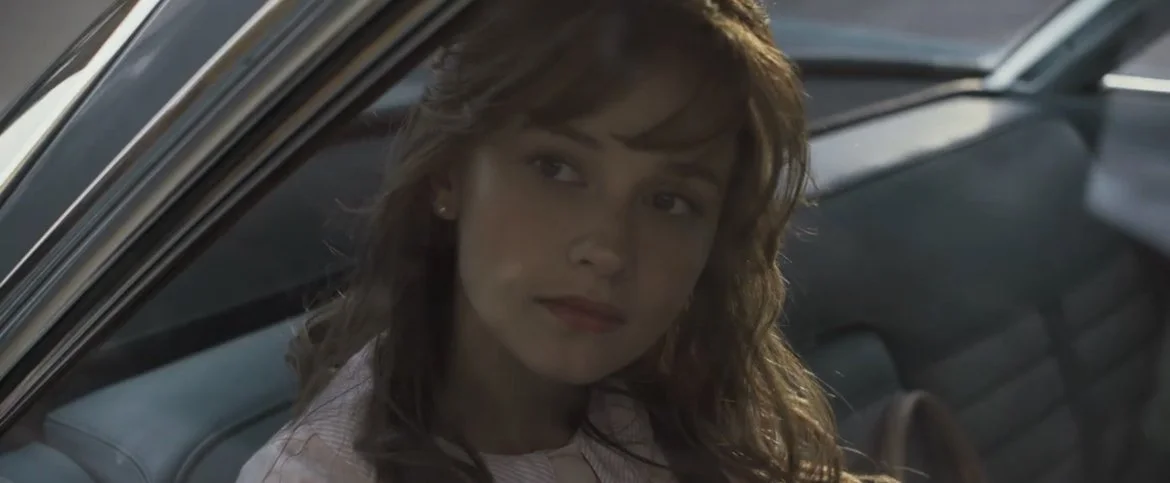Here’s more coverage for the Festival Du Nouveau Cinema.
Sofia Coppola’s last few films (“The Beguiled” and “On the Rocks”) veered away from her well-known style and into more commercial storytelling.
With “Priscilla,” Coppola is back to the aesthetic of “Lost in Translation,” “Marie Antoinette” and “Somewhere.” She’s very much firmly planted in her wheelhouse here. Based on Priscilla Presley’s 1985 biography, “Elvis and Me,” Coppola tackles themes that have been obsessions throughout her career: fame, loneliness, wealth, and desire.
“Priscilla” starts in 1959 and ends in 1973, 14 years in the life of Priscilla (Cailee Spaeny) and Elvis Presley (Jacob Elordi). He’s the rock ‘n’ roll singer she idolizes. They meet at the German army base where he’s stationed — he’s 24, she’s 14.
What Coppola gives us in “Priscilla” is a minimalist character study, an ambitious one, spanning a few decades. The film works best when it tackles the early stages of Priscilla’s relationship with Elvis. There’s a tenderness to their courtship with Coppola subtly invigorating the delicacies of first love — curfews, co-dependency, hesitations.
Elordi, although not looking at all like Elvis, is great, feeding off the energy that made the rock and roller such an iconic figure. However, make no mistake about it, Elvis is portrayed here as an arrogant womanizer; soft at one moment, turbulent hound dog the next.
Meanwhile, Spaeny glows on-screen. At first she indelibly showed her subdued infatuation for Elvis, then confusion hits and ultimately disappointed. She nails every emotion in this time-hopping tale, which does demand a certain kind of inner-chaos and outer-serenity on her part.
Problems in the film start to arise when Elvis and Priscilla’s relationship progresses and the mysterious subtleties start to disappear. If at first Coppola’s film plays like a vibrant mood piece, it suddenly takes a detour, turning into a young woman’s struggle to detach herself from her marriage with a toxic, cheating and drug-addicted husband. It becomes too analytical.
The events that come next feel less earned, less authentic, worn-out, in fact. The objectivity and sensitivity that propelled the film’s beautifully constructed first half turns into emotionally subdued excess. It doesn’t help that Coppola doesn’t really aim for any kind of bravura filmmaking here, but rather a sort of visually-flat, and dull storytelling.
“Priscilla” is basically this mood board, concocted with meticulous precision by Coppola, sometimes pumped by an rock anachronistic soundtrack, that tries to make the mundane absorbing. It sadly fails in that regard.
Compared to her more-accomplished early films, this is Coppola being less creative and more muted in her approach. It‘s much less of a fresh take than it surmises itself to be. [B-/C+]






